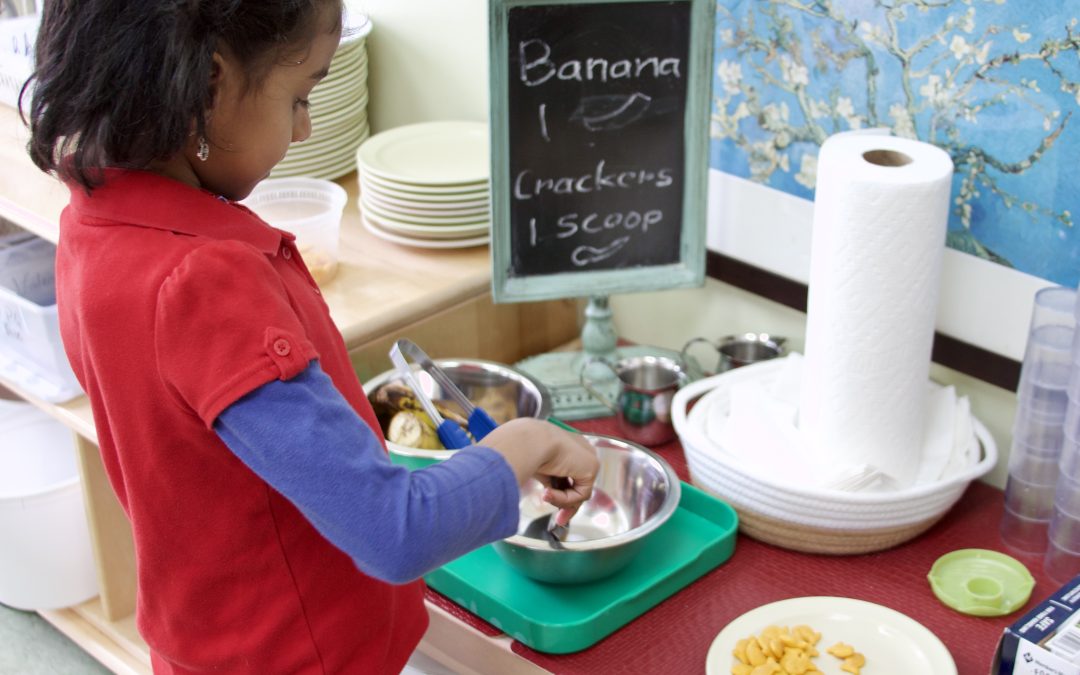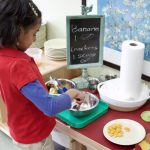One of the most powerful ways parents can support a Montessori education is by weaving independence into everyday routines at home. Children thrive when they are trusted with responsibilities that match their abilities, and the daily rhythm of mornings, mealtimes, and bedtime provides the perfect opportunities for this. With just a few simple adjustments, parents can encourage self-confidence, responsibility, and joy in learning through ordinary moments.
Morning and Bedtime Routines that Allow Choice and Self-Care
Children flourish when given choices they can manage. A simple morning routine might include letting your child pick between two outfits, choose which fruit to have with breakfast, or decide the order in which they get ready. At bedtime, children can help select their pajamas, choose a story to read, or place their belongings in a designated spot for the next day. These small decisions help children feel capable and respected while building healthy habits around responsibility.
Encouraging Children to Dress Themselves
Montessori education emphasizes the value of “practical life” skills, tasks that foster coordination, patience, and independence. Dressing is a perfect example. Child-sized furniture, like a low hook for coats or a stool for reaching shoes, makes it easier for children to manage their clothing. At first, it may take longer for them to button shirts or put on socks, but the process is just as important as the outcome. With patience and practice, children gain pride in their ability to care for themselves.
Involving Children in Simple Food Preparation
Mealtimes provide natural opportunities for independence. Children as young as two can wash fruit, spread peanut butter, pour water into a cup, or help set the table. Having a small pitcher or child-safe utensils empowers them to participate in meaningful ways. Not only do these tasks strengthen motor skills, but they also teach responsibility, patience, and the joy of contributing to family life.
Caring for Personal Belongings
When children know where their items belong and are encouraged to take care of them, they begin to develop responsibility and order. Providing accessible baskets, shelves, or hooks for backpacks, shoes, and toys allows children to take ownership of their space. A simple routine of putting away belongings when returning home or before bedtime builds consistency and a sense of pride in maintaining their environment.
The Montessori Difference at Home
By integrating independence into daily routines, parents reinforce the Montessori philosophy of respecting the child as a capable, contributing member of the family. These everyday practices don’t just make mornings and evenings smoother, they nurture confidence, problem-solving, and self-reliance that children carry with them into the classroom and beyond.







